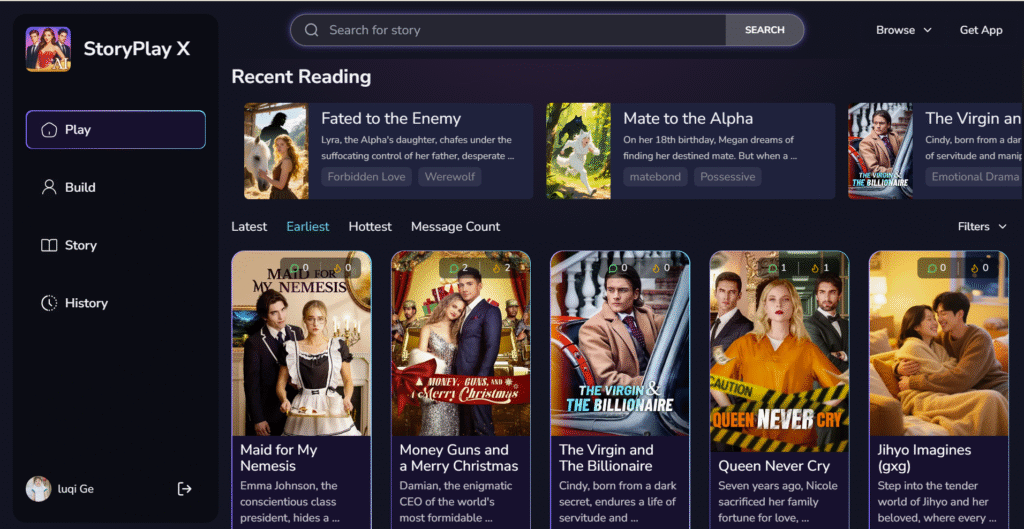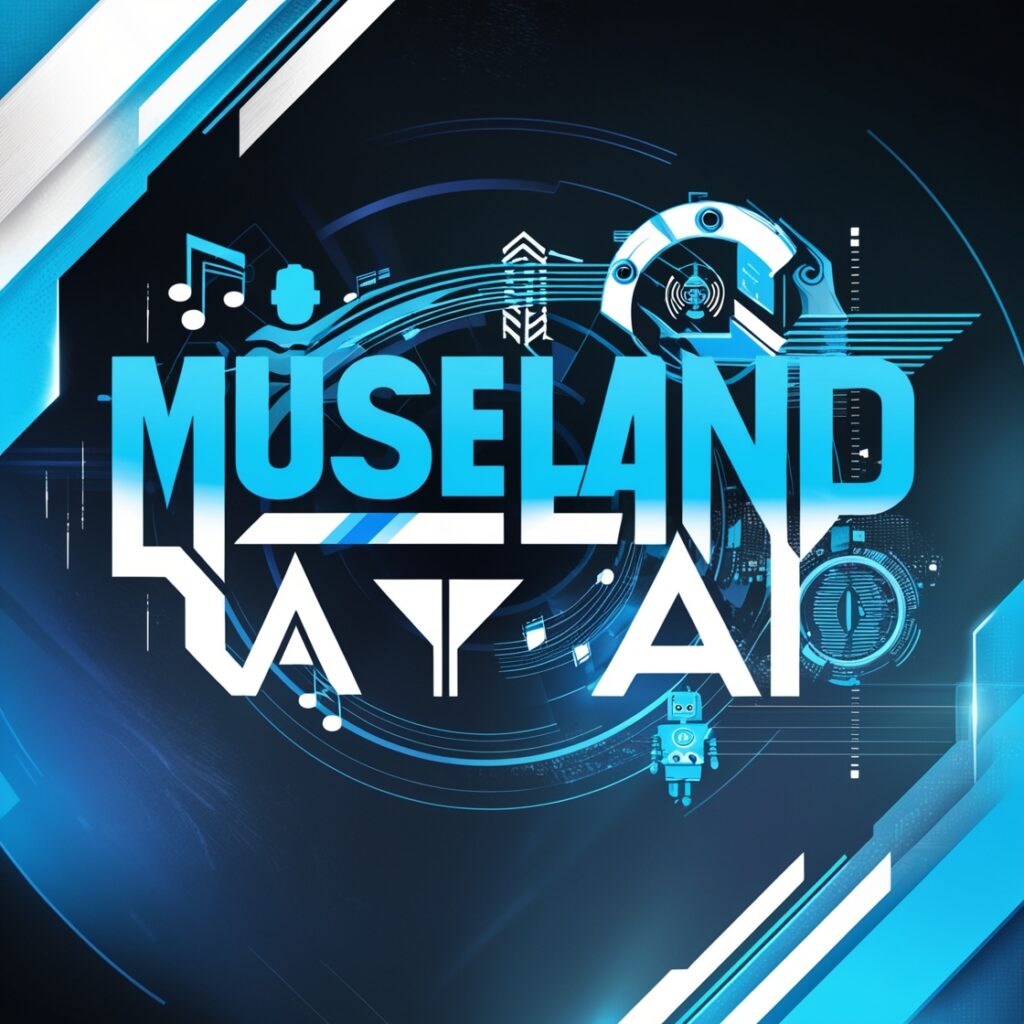Table of Contents
The explosion of AI roleplay platforms has given readers unprecedented power to interact with their favorite fictional characters. But with so many options available, how do you choose the platform that truly delivers on its promises? Museland AI roleplay has captured attention with its character chat interface, while StoryPlay X revolutionizes the space by transforming entire books into interactive adventures. This comprehensive comparison will help you understand which platform aligns with your storytelling dreams.
As someone who’s spent countless hours on both platforms, I’ve experienced firsthand how different approaches to AI-powered storytelling can dramatically affect user satisfaction. Museland AI roleplay offers quick, accessible character conversations that satisfy the immediate urge to chat with fictional favorites. Meanwhile, StoryPlay X takes a fundamentally different approach, creating immersive story worlds where your choices reshape classic narratives. Let’s dive deep into what makes each platform unique.

Understanding Museland AI Roleplay: Strengths and Limitations
Museland AI roleplay has built its reputation on accessibility and variety. The platform allows users to engage in conversations with AI-powered characters from various fictional universes or create entirely original personas. Its core appeal lies in the immediacy—within seconds of signing up, you’re chatting with your chosen character, exploring scenarios limited only by your imagination and the AI’s training.
The platform’s strengths are evident in its feature set. Character creation tools let users define personalities, backstories, and conversation styles with impressive detail. The memory system ensures characters remember previous conversations, creating a sense of relationship continuity. For many users, Museland AI roleplay scratches the itch of “what would it be like to talk to this character?” The community aspect, where users share their created characters and scenarios, adds another layer of engagement.
However, limitations become apparent with extended use. While Museland AI roleplay excels at generating believable dialogue, it struggles to maintain narrative coherence beyond conversational exchanges. Characters exist in a vacuum, disconnected from their original story worlds. A chat with Xaden from “Fourth Wing” might include discussions about dragons and rider bonds, but you’ll never actually experience the thrill of crossing the parapet or choosing your dragon. The platform’s strength—freeform conversation—becomes its weakness when users crave deeper narrative experiences.
The reliance on user-generated character descriptions also creates inconsistency. Two versions of the same character might behave completely differently depending on their creator’s interpretation. While this variety can be refreshing, it often frustrates users seeking authentic character interactions that honor source material. Museland AI roleplay works best for those who prioritize creative freedom over canonical accuracy.
StoryPlay X: Redefining Interactive Storytelling Through Complete Narratives
Where Museland AI roleplay focuses on character conversations, StoryPlay X revolutionizes the concept entirely. The platform’s core innovation lies in transforming complete books into interactive experiences. Upload your favorite novel, and within minutes, you’re not just talking about the story—you’re living it. This fundamental difference shapes every aspect of the user experience.
The technology behind StoryPlay X analyzes uploaded texts to understand plot structures, character relationships, world-building elements, and narrative themes. This comprehensive understanding allows the platform to generate authentic story branches that respect the source material while enabling player agency. When you enter Rebecca Yarros’ “Fourth Wing” through StoryPlay X, you’re not chatting with characters in a modern coffee shop AU—you’re standing at the entrance of Basgiath War College, making choices that determine your survival.
Unlike Museland AI roleplay‘s conversation focus, StoryPlay X offers three distinct perspective modes. First-person puts you directly in a character’s shoes, experiencing their challenges intimately. Second-person creates a “choose your own adventure” feel where you exist as yourself within the story world. Third-person allows you to influence multiple characters, understanding how different perspectives shape events. This flexibility transforms static narratives into dynamic, personalized experiences.
The platform’s StoryCard system deserves special mention. Each card represents a complete interactive version of an uploaded book, maintaining narrative integrity while allowing for countless variations. Your choices don’t just affect immediate conversations—they cascade through the entire story, creating unique timelines that can diverge dramatically from canon while still feeling authentic to the original work’s spirit. This is where StoryPlay X truly distinguishes itself from Museland AI roleplay and similar platforms.
Feature-by-Feature: A Detailed Comparison
Character Interaction Depth
In Museland AI roleplay, character interactions follow a prompt-response pattern. You type a message, the AI generates a contextually appropriate response, and the conversation continues. While advanced memory systems track previous exchanges, each interaction remains fundamentally isolated from a larger narrative context.
StoryPlay X embeds every character interaction within ongoing plot developments. When you speak with Paul Atreides in Dune, the conversation reflects not just his personality but also current political tensions, resource scarcities, and prophetic visions. Your dialogue choices affect not just his responses but potentially the fate of Arrakis itself.
Narrative Coherence
The greatest challenge for Museland AI roleplay lies in maintaining story consistency across conversations. Users report characters forgetting crucial plot points or contradicting established lore. The platform excels at moment-to-moment dialogue but struggles with long-term narrative development.
StoryPlay X‘s book-based approach ensures narrative coherence by design. The uploaded text serves as an immutable foundation, with the AI generating variations that respect established rules and relationships. This creates experiences where every choice feels meaningful because it exists within a larger, coherent story framework.
World-Building and Immersion
Museland AI roleplay relies heavily on users’ existing knowledge and imagination to fill in environmental details. Chatting with a character from a rich fantasy world often feels like talking to them in a void, divorced from the settings that define them.
By contrast, StoryPlay X preserves every detail from source material. The scent of spice on Arrakis, the deadly bridges of Basgiath War College, the suffocating atmosphere of the Capitol—these elements actively influence your interactive experience, creating immersion impossible through conversation alone.

Creative Freedom vs. Structure
Here, both platforms offer different strengths. Museland AI roleplay provides near-infinite creative freedom—want to discuss modern politics with medieval knights? Go ahead. This sandbox approach appeals to users who prioritize creative expression over narrative consistency.
StoryPlay X operates within source material constraints, which paradoxically enhances creativity. By providing established frameworks, the platform challenges users to find innovative solutions within defined parameters—much like how sonnets’ strict structure can inspire beautiful poetry.
Real User Scenarios: Experiencing Both Platforms
Scenario 1: Romance Reader Emma’s Fourth Wing Experience
Emma, a devoted fan of Rebecca Yarros’ “Fourth Wing,” decided to explore both platforms to extend her experience with the beloved dragon rider series.
On Museland AI roleplay, Emma created a chat with Xaden Riorson. The AI portrayed him as the brooding, protective wingleader fans adore. Their conversations explored his past, his feelings about leadership, and hypothetical scenarios about dragon bonds. Emma enjoyed the modern AU version where Xaden was a motorcycle club leader instead of a dragon rider—creative and fun, but ultimately feeling disconnected from what made her love the original story.
The Museland AI roleplay experience satisfied Emma’s desire to “talk” to Xaden but left her craving more. She could discuss the rebellion, but she couldn’t participate in it. She could hear about dragon training but never experience the terror and exhilaration of her first flight.
Switching to StoryPlay X, Emma uploaded her digital copy of “Fourth Wing” and entered the story as a first-year cadet. Instead of just chatting about the infamous parapet crossing, she faced the narrow bridge herself, making split-second decisions about whether to help struggling candidates or prioritize her own survival. Her choice to assist another cadet caught Xaden’s attention differently than in canon, creating a unique dynamic that influenced their entire relationship arc.
During the Threshing, Emma’s previous choices affected which dragons showed interest. Her compassion on the parapet attracted a different dragon than Violet’s Tairn, leading to unique challenges and abilities. The platform maintained the book’s tension and stakes while allowing Emma to forge her own path through Basgiath. She spent six hours in her first session, completely absorbed in a way that chat-based interactions never achieved.
Scenario 2: Sci-Fi Enthusiast Alex’s Dune Adventure
Alex approached both platforms as a lifelong “Dune” fan eager to explore Frank Herbert’s complex universe more deeply.
His Museland AI roleplay sessions with Paul Atreides proved intellectually stimulating. They discussed prescience, the burden of terrible purpose, and the ecological transformation of Arrakis. The AI captured Paul’s philosophical depth and messianic reluctance admirably. However, conversations remained abstract—discussing political machinations without experiencing them, debating Fremen culture without living it.
On StoryPlay X, Alex chose to enter the story as a minor House’s representative arriving on Arrakis just before the Harkonnen attack. This perspective shift offered fresh insights into familiar events. His choices during the betrayal—whether to warn the Atreides, flee immediately, or attempt to profit from the chaos—created entirely different story branches.
In one playthrough, Alex’s character joined the Fremen earlier than Paul, experiencing their culture from a different angle and potentially influencing how they received the young Atreides. The platform’s deep understanding of Herbert’s world meant every choice had realistic consequences within the established universe. Political alliances shifted based on his actions, spice production fluctuated, and the jihad Paul foresaw took different shapes based on seemingly small decisions.
Scenario 3: Mystery Lover Jordan’s Detective Experience
Jordan tested both platforms with classic mystery content, particularly Agatha Christie’s works.
Museland AI roleplay offered conversations with created “detective” characters inspired by Poirot and Miss Marple. While entertaining, the mystery elements felt artificial. Clues appeared randomly in conversation without logical connection to a coherent case. The AI struggled to maintain the careful plotting essential to good mysteries.
Uploading “Murder on the Orient Express” to StoryPlay X transformed Jordan’s experience entirely. As an additional passenger on the famous train, Jordan could investigate alongside (or in competition with) Poirot. The platform maintained Christie’s carefully constructed clues while allowing different investigative approaches. Jordan’s choice to examine certain evidence earlier or interview passengers in different orders led to alternate solutions—all equally valid within Christie’s framework.
Most remarkably, the platform enabled Jordan to potentially prevent the murder entirely through early interventions, creating an entirely different story about attempted crime and moral justice. This wasn’t possible in Museland AI roleplay, where conversations about crimes couldn’t affect predetermined outcomes.
Scenario 4: YA Reader Maya’s Hunger Games Comparison
Teenage reader Maya loved “The Hunger Games” and wanted to explore Panem beyond Katniss’s perspective.
Her Museland AI roleplay experience involved chatting with various tributes about survival strategies and life in the districts. While these conversations provided interesting character insights, they felt detached from the series’ core tension—the life-or-death stakes of the arena. Discussing rebellion plans with AI characters lacked urgency when those plans existed only in conversation.
Through StoryPlay X, Maya entered the 74th Hunger Games as a District 7 tribute. Every choice carried weight: forming alliances meant trusting potential killers, grabbing supplies at the Cornucopia risked immediate death, and showing mercy might inspire sponsors or create future threats. The platform captured the Games’ psychological horror—not through description but through forcing impossible choices.
Maya’s playthrough diverged dramatically from canon when her character’s lumber district skills proved unexpectedly valuable, attracting different sponsors and alliance offers. Her interactions with Katniss and Peeta reflected their canonical personalities while adapting to her presence in the arena. The experience drove home the series’ themes about survival, humanity, and resistance more powerfully than any conversation could.
Making Your Choice: Which Platform Suits Your Needs?
Choose Museland AI Roleplay If You:
Value immediate gratification and enjoy casual character conversations without complex narrative commitments. Museland AI roleplay excels for users who want to chat with favorite characters during coffee breaks, explore “what if” scenarios without consequence, or create original characters for quick roleplay sessions. The platform’s strength lies in its accessibility and creative freedom.
Prefer modern AU scenarios or crossover conversations that wouldn’t fit within established canon. If you’ve always wanted to discuss philosophy with Hermione Granger in a contemporary university setting or have Aragorn give you career advice, Museland AI roleplay provides that flexibility without judgment.
Enjoy the social aspect of sharing and trying other users’ character creations. The Museland AI roleplay community thrives on creative interpretation and reimagining of beloved characters.

Choose StoryPlay X If You:
Crave complete narrative experiences where your choices genuinely affect story outcomes. StoryPlay X transforms reading from passive consumption to active participation, perfect for those who’ve always wanted to change crucial plot points or explore alternative character decisions.
Value authenticity and consistency with source material while still wanting creative freedom within those boundaries. The platform respects original works while enabling personal exploration, ideal for fans who love canon but wonder about unexplored possibilities.
Seek deeper engagement than surface-level conversations. If you want to understand characters through shared experiences rather than just dialogue, if you prefer showing rather than telling, StoryPlay X provides that immersive depth.
Have time for longer, more involved sessions. While Museland AI roleplay suits quick interactions, StoryPlay X rewards dedicated exploration with richer, more satisfying narrative experiences.
The Future of AI-Powered Storytelling
The competition between conversational and narrative approaches to AI roleplay pushes both paradigms forward. Museland AI roleplay continues improving memory systems and character consistency, while platforms like StoryPlay X expand the possibilities of interactive literature. Rather than declaring a winner, we should celebrate how different approaches serve different needs within the growing ecosystem of AI-enhanced storytelling.
Looking ahead, we might see convergence between these models. Imagine Museland AI roleplay conversations that affect larger narrative arcs, or StoryPlay X experiences that include more freeform character interactions between plot points. The future likely holds hybrid experiences combining the best of both worlds.
For now, the choice between Museland AI roleplay and StoryPlay X depends on what you seek from interactive fiction. Those wanting quick, creative character conversations will find Museland AI roleplay perfectly suited to their needs. Readers craving deep, choice-driven narratives within beloved fictional worlds should explore StoryPlay X‘s revolutionary approach.
Ultimately, both platforms contribute to a renaissance in how we engage with stories and characters. Whether through conversation or complete narrative immersion, AI-powered platforms are breaking down barriers between readers and the fictional worlds they love. The question isn’t which platform is objectively better—it’s which one helps you tell the stories you’ve always dreamed of experiencing.
Ready to explore? Try both platforms and discover which approach to interactive storytelling captures your imagination. Your favorite characters and stories are waiting—the only question is how you want to meet them.
